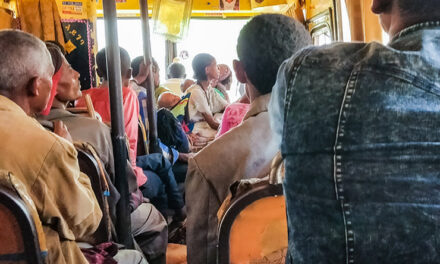EVN, Sept 13 — Yemeni security authorities have initiated a campaign in Aden to quell a violent clash between Ethiopian immigrants, which resulted in ten fatalities and numerous injuries, as reported by Asharq al-Awsat.
Sources revealed that Aden’s authorities are relocating migrants to temporary camps in Mansoura and Sheikh Othman. Although security forces managed to quell the initial clashes, the situation remains volatile, with police vehicles observed transporting migrants to a gathering point near the Basateen camp in the Sheikh Othman District.
Both Yemeni police and the International Organization for Migration (IOM) have remained tight-lipped regarding the reasons behind the confrontations.
According to Arafat Jibril Barki, President of Oromo Human Rights, the primary trigger for the clashes was the Ethiopian government’s refusal to accept migrants from the Amhara and Tigray ethnicities due to security concerns in those regions. Ethiopia only accepted nationals of the Oromo ethnicity.
Jibril explained that the turmoil began last Thursday in front of the International Organization for Migration office when migrants, seeking to return to their homeland, clashed with the Ethiopian government’s directive not to allow the return of individuals from the excluded ethnic groups. This led to an attack on the international immigration representative and a guard.
During the altercation, protesters tore up a travel ticket meant for an Oromo national, resulting in one of them stabbing an employee. In response, the guard fired back, killing the assailant. This incident sparked further clashes that eventually claimed the lives of ten individuals, including six from Amhara, one from Tigray, and three from Oromo.
Reports of the exclusion of the Amhara and Tigray ethnicities rapidly circulated among migrants, intensifying tensions and leading to violent confrontations before the intervention of security forces.
Yemeni authorities are actively addressing the issue of illegal immigrants and are engaged in discussions with international organizations. Government sources indicated that relocating migrants to the Kharaz camp in Lahj represents the best course of action, given the complex internal situation in Ethiopia.
Officials acknowledged that the Kharaz camp, the largest in Yemen, lacks several essential services. Nevertheless, it remains the only viable option for accommodating the thousands of migrants who have arrived in Yemen, exceeding 86,000 over recent months.
Thousands of migrants aspire to return to their home country after discovering that they were deceived by smugglers who led them to a war-torn nation instead of their intended Gulf destinations.








